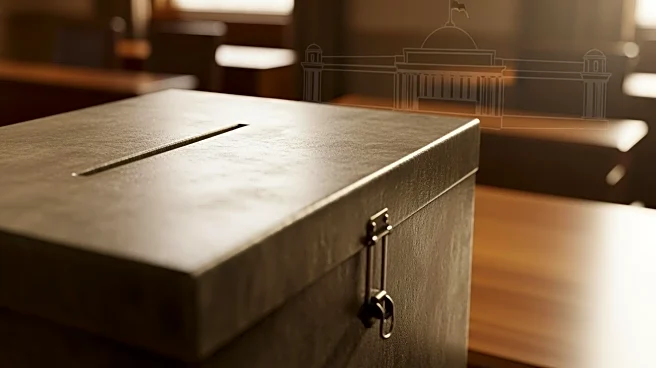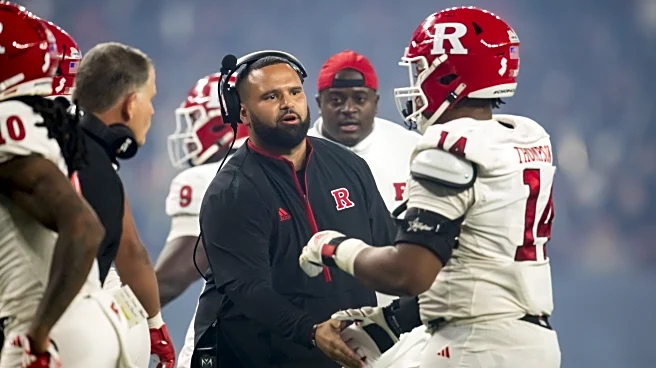What's Happening?
Telegram CEO Pavel Durov has proposed purchasing jewelry stolen from the Louvre in Paris and donating it to the Louvre Abu Dhabi. This offer follows a heist where thieves stole eight pieces of Napoleonic
jewelry from the Louvre's Apollo Gallery. The stolen items are valued at approximately €88 million, with the crown of Empress Eugénie being damaged during the escape. Durov criticized the French government, suggesting the theft is indicative of broader societal decline. He expressed willingness to buy the stolen artifacts and donate them to the Louvre Abu Dhabi, emphasizing that such thefts do not occur there.
Why It's Important?
Durov's offer highlights concerns about cultural heritage preservation and the security of valuable artifacts. His criticism of the French government points to broader issues of governance and societal stability. The incident raises questions about the effectiveness of security measures in protecting national treasures. Additionally, Durov's comments reflect a growing discourse on the erosion of tradition and privacy, which could influence public policy and societal attitudes towards cultural preservation and government accountability.
What's Next?
The museum authorities have yet to respond to Durov's offer, and it remains unclear whether the stolen jewelry will be recovered or if Durov's proposal will be accepted. The incident may prompt increased security measures at cultural institutions and discussions on international cooperation for artifact recovery. Stakeholders, including government officials and museum curators, may need to address the implications of such thefts on cultural heritage and public trust.
Beyond the Headlines
Durov's comments on societal decline and the erosion of tradition and privacy suggest deeper cultural and ethical concerns. His remarks may resonate with those worried about the impact of modern governance on cultural values and freedoms. The incident could spark debates on the balance between security and accessibility in cultural institutions, as well as the role of private individuals in preserving cultural heritage.










